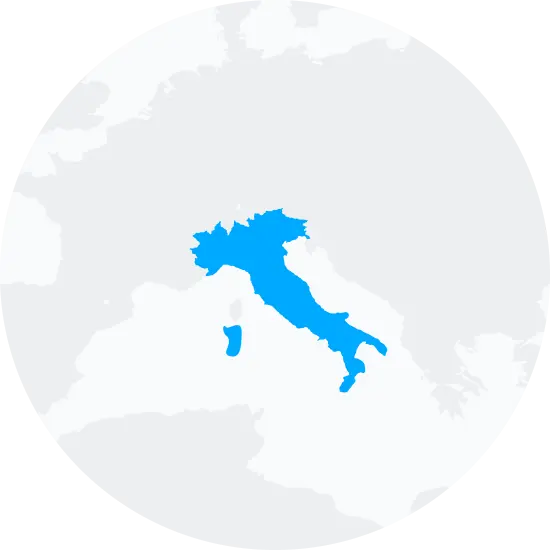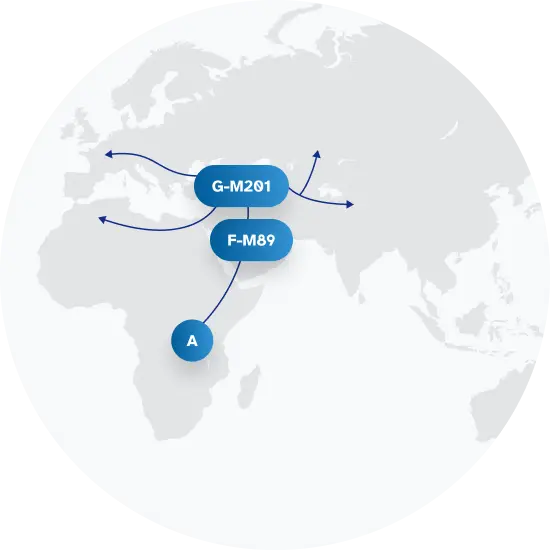Explore the Family Name Parente
How common is the last name Parente in the United States?
Based on the Decennial U.S. Census, the surname Parente saw a slight dip in its popularity ranking from 2000 to 2010, dropping from rank 9872 to 10176 which signifies a decrease of 3.08%. However, during the same time period, the actual count of individuals bearing the surname increased by 5.07% from 3017 to 3170. The proportion of people with the surname Parente per 100k population also decreased by 4.46%, from 1.12 in 2000 to 1.07 in 2010.
| 2000 | 2010 | Change | |
|---|---|---|---|
| Rank | #9,872 | #10,176 | -3.08% |
| Count | 3,017 | 3,170 | 5.07% |
| Proportion per 100k | 1.12 | 1.07 | -4.46% |
Race and Ethnicity of people with the last name Parente
In terms of ethnicity, according to the Decennial U.S. Census data, there have been some changes within the Parente surname bearers. The percentage identifying as Asian/Pacific Islander grew significantly from 0.50% to 1.20%, marking an increase of 140.00%. Those reporting multiple ethnicities dropped by 34.92%, from 1.89% to 1.23%. The majority still identified as White, although this group experienced a slight decrease from 92.67% to 91.23%. The Hispanic representation within the Parente surname holders saw an increase of 27.67%, going up from 4.77% to 6.09%. Interestingly, there was a small emergence of Black identity at 0.25%, and American Indian and Alaskan Native identity remained constant at 0%.
| 2000 | 2010 | Change | |
|---|---|---|---|
| White | 92.67% | 91.23% | -1.55% |
| Hispanic | 4.77% | 6.09% | 27.67% |
| Two or More Races | 1.89% | 1.23% | -34.92% |
| Asian/Pacific Islander | 0.5% | 1.2% | 140% |
| Black | 0% | 0.25% | 0% |
| American Indian and Alaskan Native | 0% | 0% | 0% |
Parente ancestry composition
23andMe computes an ancestry breakdown for each customer. People may have ancestry from just one population or they may have ancestry from several populations. The most commonly-observed ancestry found in people with the surname Parente is Italian, which comprises 41.9% of all ancestry found in people with the surname. The next two most common ancestries are British & Irish (18.3%) and French & German (14.0%). Additional ancestries include Spanish & Portuguese, Eastern European, Ashkenazi Jewish, Greek & Balkan, and Scandinavian.
Ready to learn more about your ancestry? Get the most comprehensive ancestry breakdown on the market by taking our DNA test. Shop 23andMe
| ANCESTRY BREAKDOWN | COMPOSITION |
|---|---|
| Italian | 41.9% |
| British & Irish | 18.3% |
| French & German | 14.0% |
| Other | 25.8% |

Possible origins of the surname Parente
Your DNA provides clues about where your recent ancestors may have lived. Having many distant relatives in the same location suggests that you may all share common ancestry there. Locations with many distant relatives can also be places where people have migrated recently, such as large cities. If a large number of individuals who share your surname have distant relatives in a specific area, it could indicate a connection between your surname and that location, stemming from either recent ancestral ties or migration.
Based on 23andMe data, people with last name Parente have recent ancestry locations in Italy and the United Kingdom of Great Britain and Northern Ireland.
| RECENT ANCESTRY Location | Percentage |
|---|---|
| Sicily, Italy | 63.10% |
| Calabria, Italy | 63.10% |
| Campania, Italy | 62.10% |
| Apulia, Italy | 58.30% |
| Lazio, Italy | 58.30% |
What Parente haplogroups can tell you
Haplogroups are genetic population groups that share a common ancestor on either your paternal or maternal line. These paternal and maternal haplogroups shed light on your genetic ancestry and help tell the story of your family.
The top paternal haplogroup of people with the surname Parente is G-PF3345, which is predominantly found among people with European ancestry. Haplogroup G-PF3345 is descended from haplogroup G-M201. Other common haplogroups include I-M170 and J-M172, which are predominantly found among people with European and European ancestry. Other surnames with similar common haplogroups are: Bosco, Carbone, Campana, Hesse, Giglio, Ferro, Stoll, Glassman, Testa, Scholl.
The most common maternal haplogroups of people with Parente surname are: H1, H, V. These most commonly trace back to individuals of European ancestry.
 Paternal Haplogroup Origins G-M201
Paternal Haplogroup Origins G-M201
Your paternal lineage may be linked to Ötzi the Iceman
Ötzi the Iceman was discovered in 1991, protruding from a snow-bank high in the Alps near the Austrian-Italian border. His 5,300-year-old remains turned out to be so well preserved that researchers were able to construct a detailed account of his life and death. Chemical analysis of Ötzi's teeth indicates he came from the Italian side of the Alps. He had suffered during the year before his death with whipworm, a stomach parasite that was found in his digestive tract. Yet he was fit enough to climb 6,500 feet in elevation during the day or two before he met his end in a rocky alpine hollow. Ötzi apparently was murdered, struck by a stone arrow point that was found lodged in his left shoulder. The twisted position of his body indicates that the murderer, or one of his accomplices, pulled the arrow's shaft out of Ötzi's prone body.Yet whoever killed Ötzi did not take the valuable and finely wrought copper axe that he carried with him — an indicator that at the age of 45, the Ice Man may have been a figure of some importance in his community. Recently, scientists who were able to extract DNA from Ötzi's remains discovered that he belonged to a paternal lineage that stems from haplogroup G-M201. Today, Ötzi's lineage reaches its highest levels in Sardinia and Corsica, and was once common among early European farmers.
Your maternal lineage may be linked to Marie Antoinette
Because it is so dominant in the general European population, haplogroup H also appears quite frequently in the continent's royal houses. Marie Antoinette, an Austrian Hapsburg who married into the French royal family, inherited the haplogroup from her maternal ancestors. So did Prince Philip, Duke of Edinburgh, whose recorded genealogy traces his female line to Bavaria. Scientists also discovered that famed 16th century astronomer Nicolaus Copernicus traced his maternal lineages to haplogroup H.

What do people with the surname Parente have in common?
Spoiler alert: it's complicated. People with the same last name are usually no more genetically similar than a randomly sampled group of people from the same population. That said, people with the same surname are more likely to have similar ancestries than randomly sampled individuals. The reason is the tendency of people with similar cultural or geographical backgrounds to preferentially mate with one another. That's why people who share a surname may be more likely to share traits and tendencies in common than people within the general population. Check out the percentages below to see the prevalences of tastes, habits, and traits of people with your surname compared with prevalences among 23andMe users.
Preferences
Traits
Habits
Wellness
Are health conditions linked to the last name Parente?
The short answer is that, if there is an association between surname and health, it's usually more about your ancestry than your name. Individuals with a given surname are no more genetically similar than the general population but often have similar ancestries. The populations of people associated with those shared ancestries often have sets of genetic variations, also known as alleles, in common. Some of those alleles are associated with a greater likelihood of developing certain diseases.
Disease variant frequency by ancestry
Disease allele frequencies in populations associated with the surname Parente are shown below. Important Note: not everyone with a disease allele will develop these health condition













